module2 unit 1 word power[下学期]
文档属性
| 名称 | module2 unit 1 word power[下学期] |
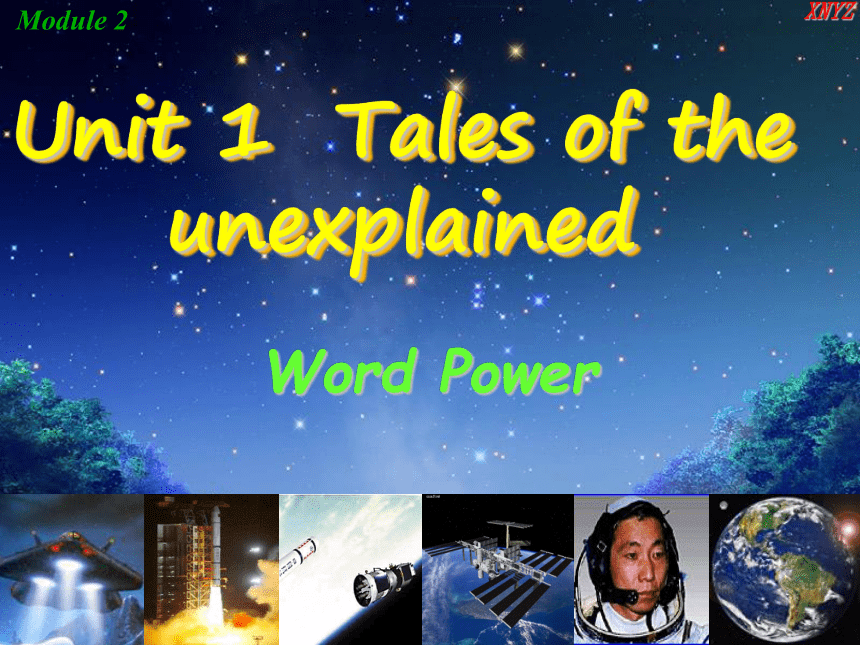
|
|
| 格式 | rar | ||
| 文件大小 | 487.7KB | ||
| 资源类型 | 教案 | ||
| 版本资源 | 牛津译林版 | ||
| 科目 | 英语 | ||
| 更新时间 | 2005-11-20 00:00:00 | ||
图片预览

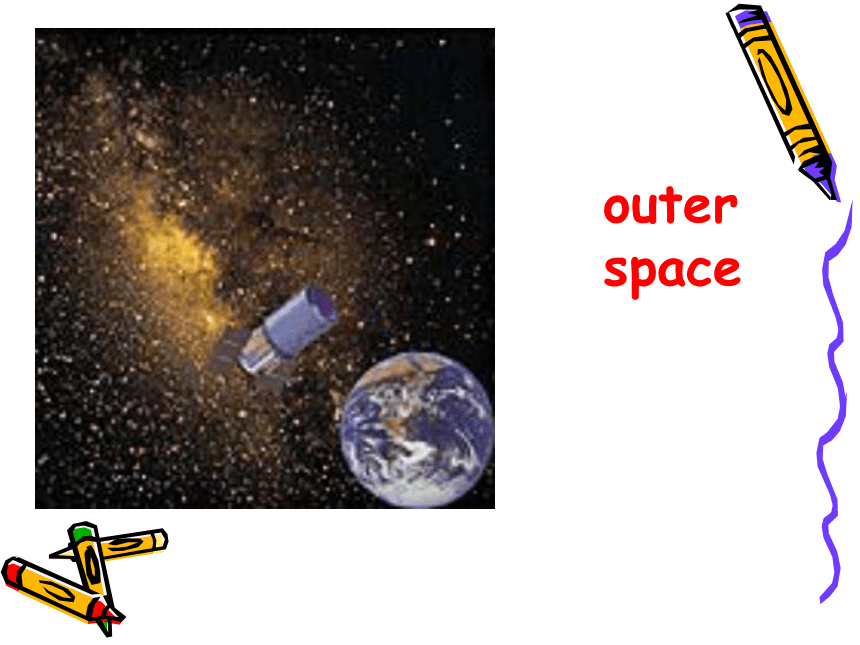
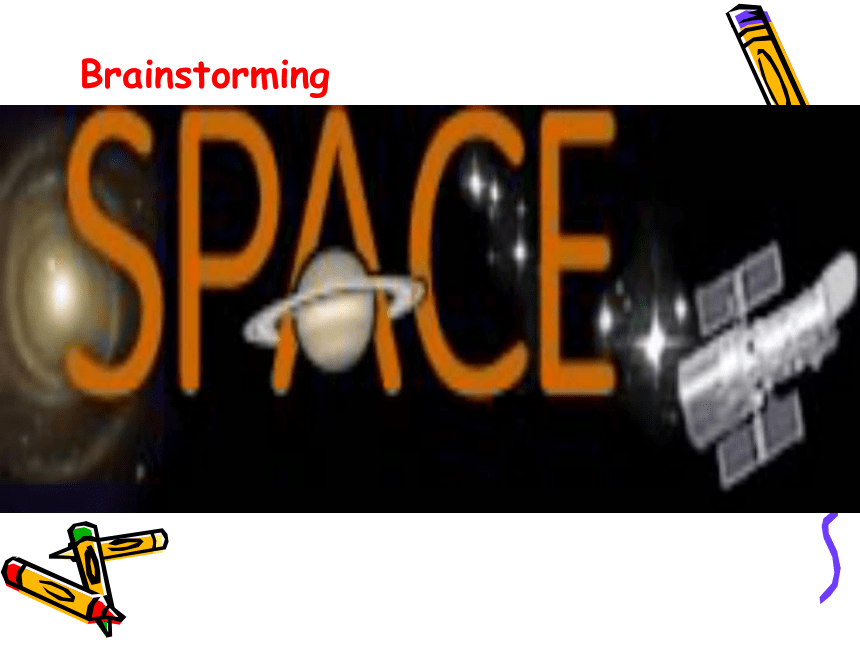
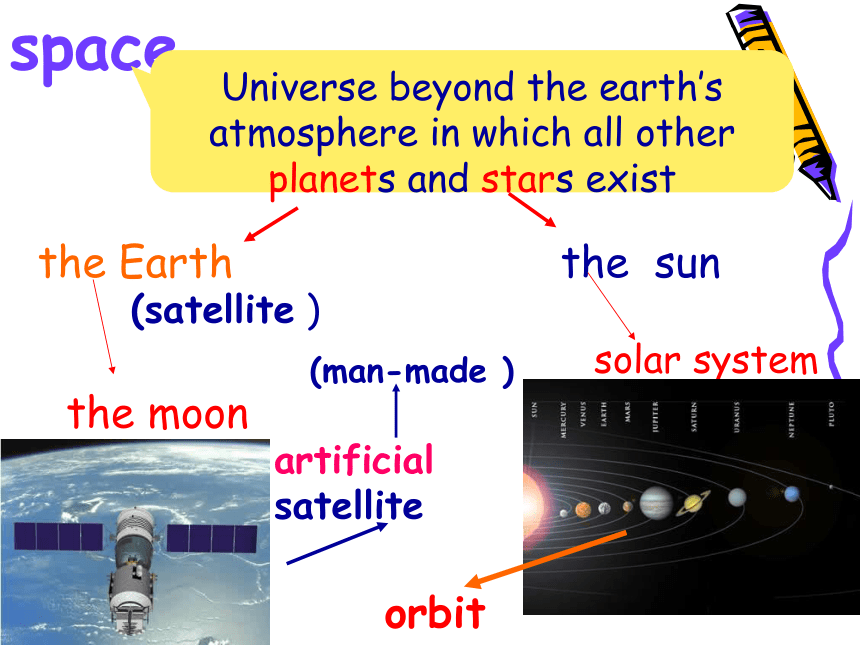
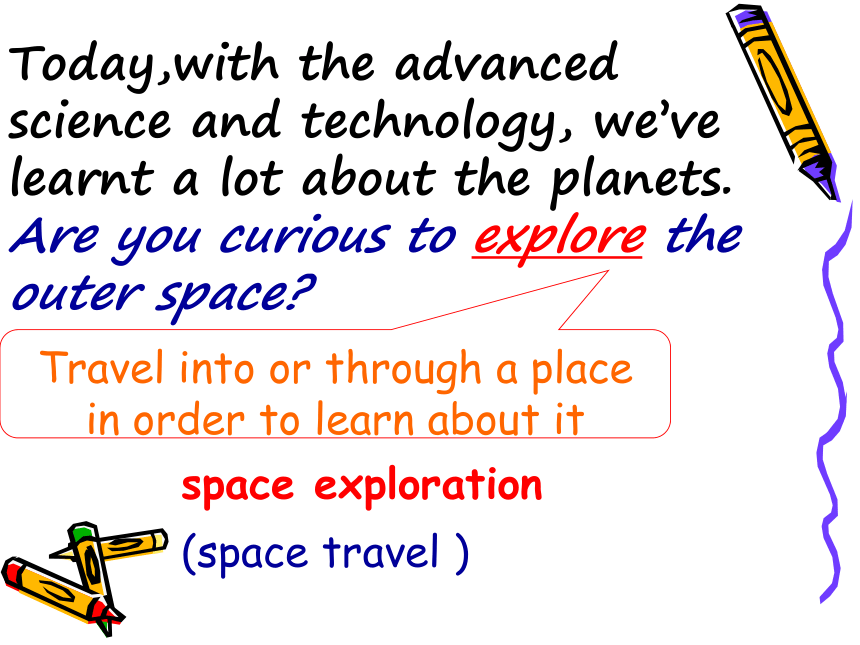
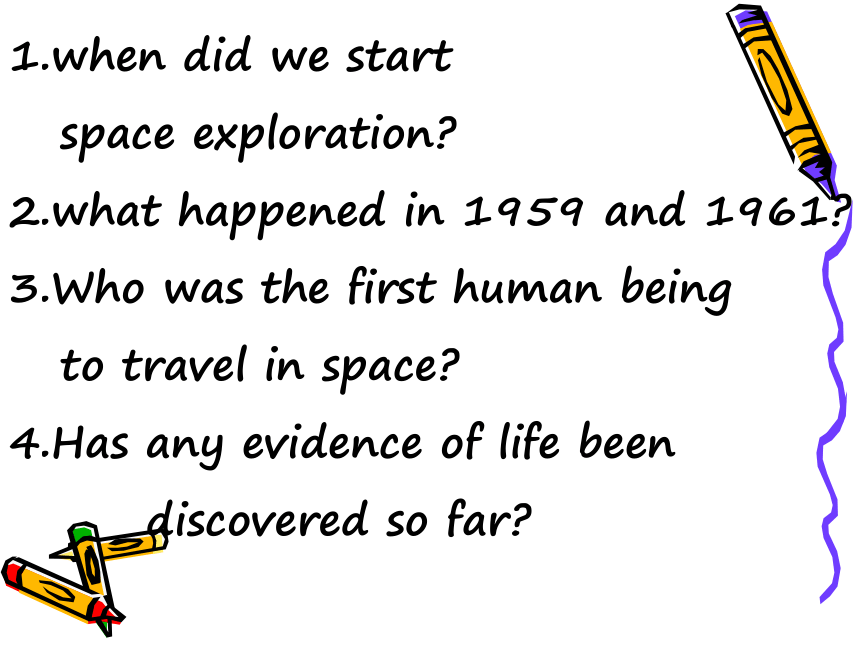
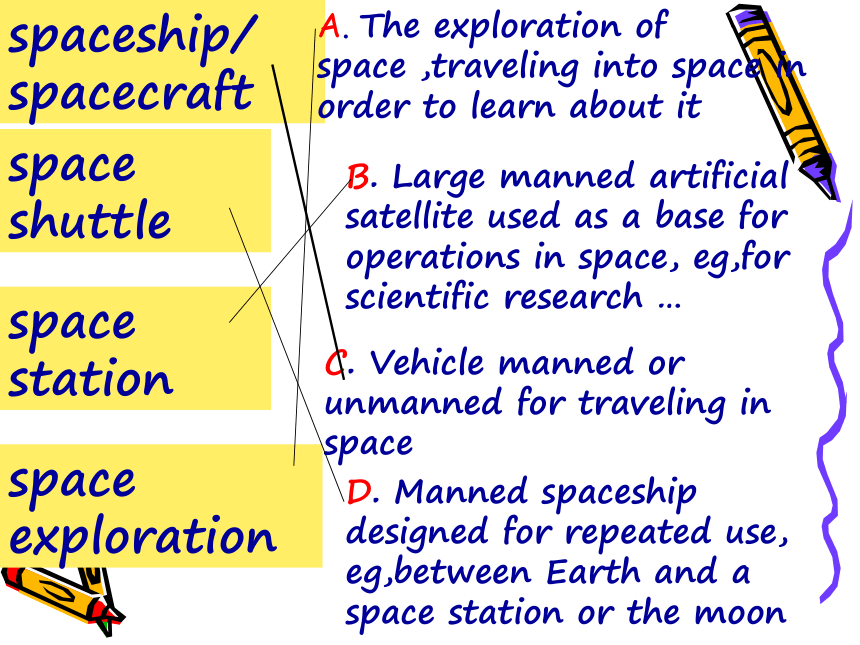
文档简介
课件19张PPT。Unit 1 Tales of the unexplainedWord PowerModule 2XNYZouter spaceBrainstorming space Universe beyond the earth’s atmosphere in which all other planets and stars existthe Earth the sunthe moon(satellite )artificial satellitesolar system orbit (man-made )Today,with the advanced science and technology, we’ve
learnt a lot about the planets.
Are you curious to explore the outer space?Travel into or through a place in order to learn about it space exploration (space travel )1.when did we start
space exploration?
2.what happened in 1959 and 1961?
3.Who was the first human being
to travel in space?
4.Has any evidence of life been
discovered so far?spaceship/
spacecraftspace shuttle space station space explorationA. The exploration of space ,traveling into space in order to learn about it B. Large manned artificial satellite used as a base for operations in space, eg,for scientific research …C. Vehicle manned or unmanned for traveling in space D. Manned spaceship designed for repeated use, eg,between Earth and a space station or the moon spacespacesuitspacewalk astronaut E Person who travels in outer space F. Sealed suit covering the whole body and supplied with air , allowing the wearer to move about in space G. Action of moving about in space outside a spacecraft H. Universe beyond the Earth’s atmosphere in which all other planets and stars existMercury Mercury was named by the Romans after the fleet-footed(快腿的) messenger(信使) of the gods because it seemed to move more quickly than any other planet. It is the closest planet to the Sun, and second smallest planet in the solar system.Venus Venus, the jewel of the sky, was once known by ancient astronomers (天文爱好者)as the morning star and evening star. Early astronomers once thought Venus to be two separate bodies. Venus, which is named after the Roman goddess of love and beauty, is veiled(隐藏的) by thick swirling(旋涡) cloud cover.
?Earth is the third planet from the Sun and the fifth largest: It was not until the twentieth century that we had maps of the entire planet.
Pictures of the planet taken from space are of considerable importance.EarthMars Mars is the fourth planet from the Sun and is commonly referred to as the Red Planet. The rocks, soil and sky have a red or pink hue(颜色). The distinct(独特的)red color was observed by stargazers(天文学家) throughout history. It was given its name by the Romans in honor of(以某人的名誉) their god of war. JupiterJupiter is the fifth planet from the Sun and is the largest one in the solar system. If Jupiter were hollow(空心的), more than one thousand Earths could fit inside. It also contains more matter than all of the other planets combined(联合的)。Jupiter possesses 28 known satellites. Saturn Saturn is the sixth planet from the Sun and is the second largest in the solar system. Its day is 10 hours, 39 minutes long, and it takes 29.5 Earth years to revolve about the Sun. Saturn is the only planet less dense(密集,浓厚) than water
Uranus Uranus is the seventh planet from the Sun and is the third largest in the solar system.
In 1977, the first nine rings of Uranus were discovered. There may be a large number of narrow rings
?
Neptune Neptune is the outermost(最外面的) planet of the gas giants. Methane(甲烷,沼气) gives Neptune its blue cloud color. Neptune has a set of four rings which are narrow and very faint(模糊的)
Pluto Today Pluto remains the only planet that has not been visited by a spacecraft, yet an increasing amount of information is unfolding about this peculiar(奇特的,特殊的) planet. Discussion If you have a chance to travel in space, which planet do you want to go ?why?
How would you like to go there ?Thank you!XNYZ
learnt a lot about the planets.
Are you curious to explore the outer space?Travel into or through a place in order to learn about it space exploration (space travel )1.when did we start
space exploration?
2.what happened in 1959 and 1961?
3.Who was the first human being
to travel in space?
4.Has any evidence of life been
discovered so far?spaceship/
spacecraftspace shuttle space station space explorationA. The exploration of space ,traveling into space in order to learn about it B. Large manned artificial satellite used as a base for operations in space, eg,for scientific research …C. Vehicle manned or unmanned for traveling in space D. Manned spaceship designed for repeated use, eg,between Earth and a space station or the moon spacespacesuitspacewalk astronaut E Person who travels in outer space F. Sealed suit covering the whole body and supplied with air , allowing the wearer to move about in space G. Action of moving about in space outside a spacecraft H. Universe beyond the Earth’s atmosphere in which all other planets and stars existMercury Mercury was named by the Romans after the fleet-footed(快腿的) messenger(信使) of the gods because it seemed to move more quickly than any other planet. It is the closest planet to the Sun, and second smallest planet in the solar system.Venus Venus, the jewel of the sky, was once known by ancient astronomers (天文爱好者)as the morning star and evening star. Early astronomers once thought Venus to be two separate bodies. Venus, which is named after the Roman goddess of love and beauty, is veiled(隐藏的) by thick swirling(旋涡) cloud cover.
?Earth is the third planet from the Sun and the fifth largest: It was not until the twentieth century that we had maps of the entire planet.
Pictures of the planet taken from space are of considerable importance.EarthMars Mars is the fourth planet from the Sun and is commonly referred to as the Red Planet. The rocks, soil and sky have a red or pink hue(颜色). The distinct(独特的)red color was observed by stargazers(天文学家) throughout history. It was given its name by the Romans in honor of(以某人的名誉) their god of war. JupiterJupiter is the fifth planet from the Sun and is the largest one in the solar system. If Jupiter were hollow(空心的), more than one thousand Earths could fit inside. It also contains more matter than all of the other planets combined(联合的)。Jupiter possesses 28 known satellites. Saturn Saturn is the sixth planet from the Sun and is the second largest in the solar system. Its day is 10 hours, 39 minutes long, and it takes 29.5 Earth years to revolve about the Sun. Saturn is the only planet less dense(密集,浓厚) than water
Uranus Uranus is the seventh planet from the Sun and is the third largest in the solar system.
In 1977, the first nine rings of Uranus were discovered. There may be a large number of narrow rings
?
Neptune Neptune is the outermost(最外面的) planet of the gas giants. Methane(甲烷,沼气) gives Neptune its blue cloud color. Neptune has a set of four rings which are narrow and very faint(模糊的)
Pluto Today Pluto remains the only planet that has not been visited by a spacecraft, yet an increasing amount of information is unfolding about this peculiar(奇特的,特殊的) planet. Discussion If you have a chance to travel in space, which planet do you want to go ?why?
How would you like to go there ?Thank you!XNYZ
